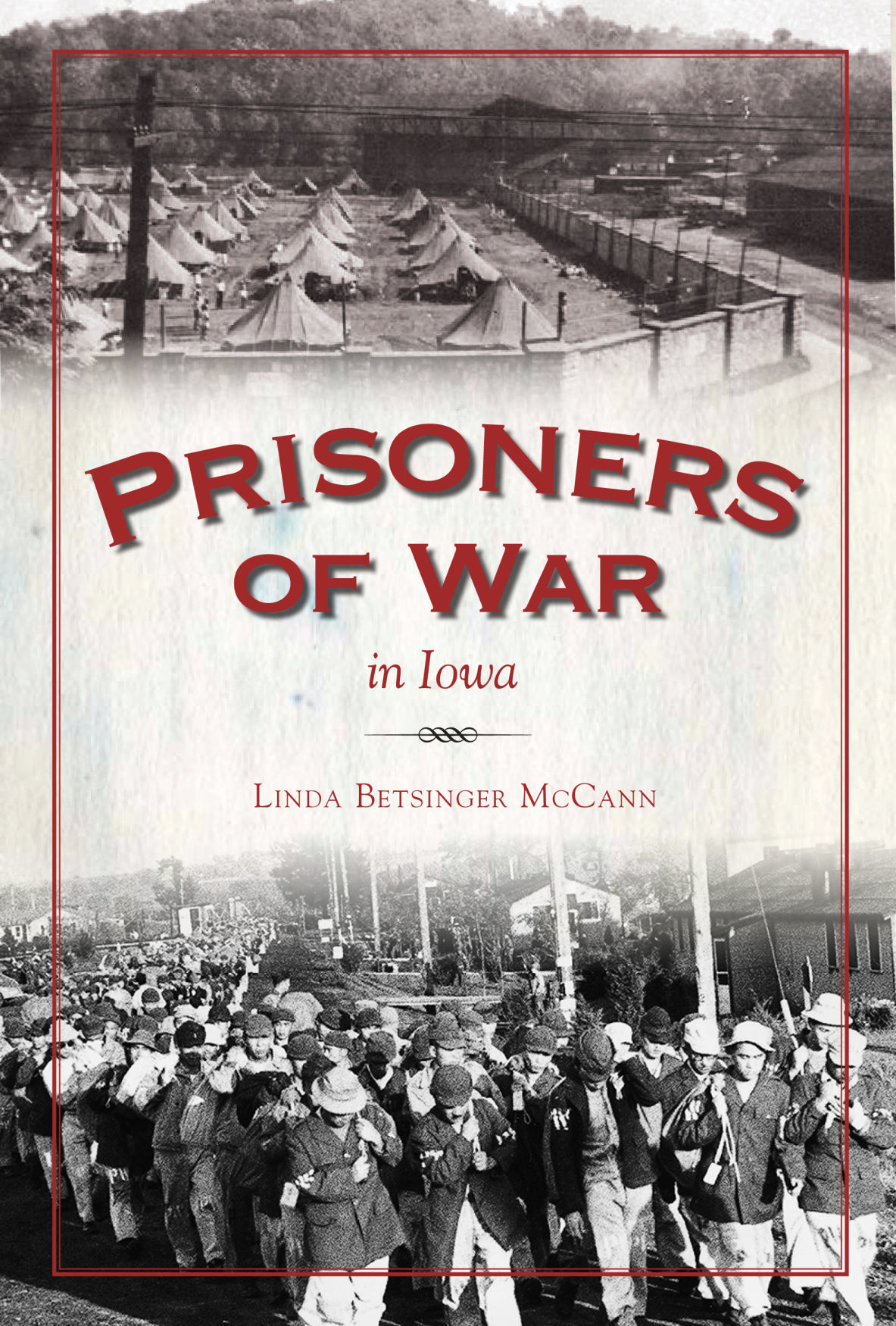It's 1944. Otto Steinke is too old to be drafted, his son just a hair too young. Besides, both are needed because the Allied cause requires mountains of food, food the Steinkes can produce on their Iowa farm. Not everyone can be a soldier, even some who really, really want to be.
Come harvest, there is most definitely a shortage of help. Most all of the eligible men are gone--some to the South Pacific, some to Europe. Church music sometimes sounds like a woman's chorus. You can't just enlist women for harvest either because threshing crews test women's perseverance in ways that nothing else does--long, long days in the kitchen.
Down the road there's a POW camp where hundreds--even thousands--of young men don't do much at all. The government puts out a shingle, and Otto Steinke, whose mother tongue is German--his mom never really learned English at all--decides to take a chance on the enemy, so he goes down the road to the POW camp and asks for a few young men. It's harvest, after all.
One who comes to his farm is named Becker, a man Steinke discovers rather quickly is hardly a Hitler fan. Becker had been conscripted, he hated the way Germany was treated after the Great War, but the man--and the others, for that matter--doesn't feel like an enemy to Steinke.
When harvest is over, Becker stays on--Otto can use help around the farm, and he's working ground down the road for neighbors too. Although they're a little circumspect about using the German language in public, when the two of them are together they communicate like brothers in the old language. When finally the war in Europe ends, the two are fast friends, so much so that when Becker is returned to Germany--as all the POWs had to be--some tears fall in the Steinke home.
"Write us, for sure," Otto says on that last day. "If something there is what you need, let us know."
Becker nods his head.
But the Germany Becker discovers when back home is not the Germany he left. The country is ravaged. When he leaves the bombed-out cities behind, he is surprised and blessed to find his house still in tact, his family safe.
But the economy is in shambles. There is work, but no money and no food. When Hitler's dreams went up in smoke, they left nothing but ruin in the country.
One day Becker decides to see for himself if the rumors are true--the stories he hears about the camps. One of those camps, people say, was hidden away in a forest not all that far from where he and his family lives.
He walks, finds the trail people told him to take. There are no bodies any more, no starving prisoners, no crying children; but when he walks in, for some reason the suffering has lingered--he can see it, smell it. It will infect you, he thinks. Even what's not there could kill--just the memory, just imagining.
Becker remembers Otto Steinke and his family, remembers the good food on that round table in the kitchen of the farm house, fresh milk, butter. He remembers being afraid when first all those prisoners marched down the highway to the camp, but he can't help but remember too how that fear was simply lifted. He remembers the Steinke family with a fondness that once more makes him reach for his rag in his pocket.
"Write us, sure," Otto had told him. "If something there is what you need, let us know."
But he can't. In Iowa, he was treated like an honored guest. Here, in this place where he is standing, he knows all too well that people were treated like vermin. He doesn't dare to write the Steinkes. He is so greatly ashamed.
Eventually, his wife tells him to write his old American friends, not for his sake nor for hers, but for his children's sake--"because they're suffering, they're really, really suffering. Can't you see?"
He can. So he does.
And relief comes as he knew it would--"ten packages: food, clothes, chocolate, and things impossible to get."
Becker and his family, we're told, were filled with joy.
_______________________
I'm finding Prisoners of War in Iowa, by Linda Betsinger McCann, simply alive with rich and memorable stories.


No comments:
Post a Comment